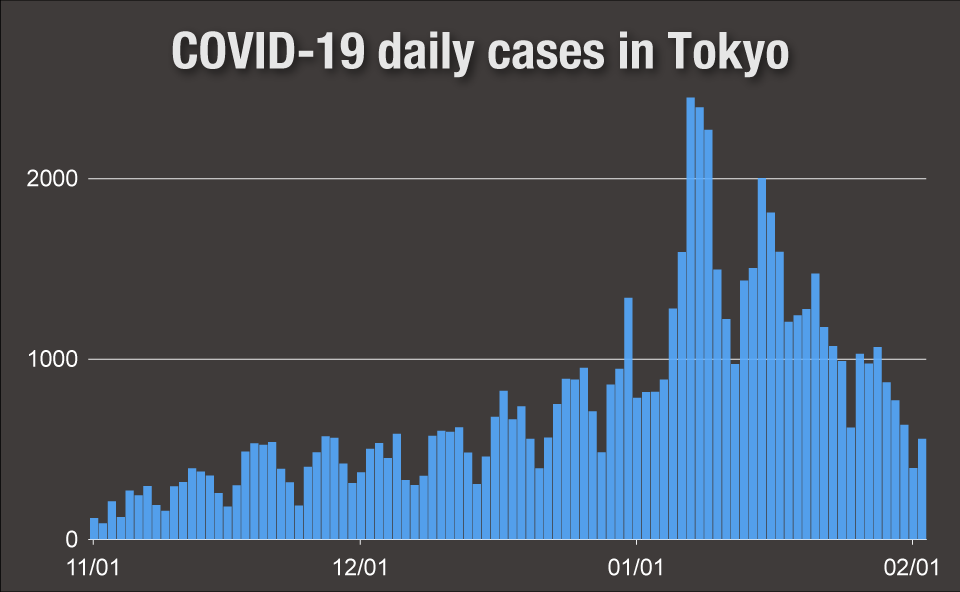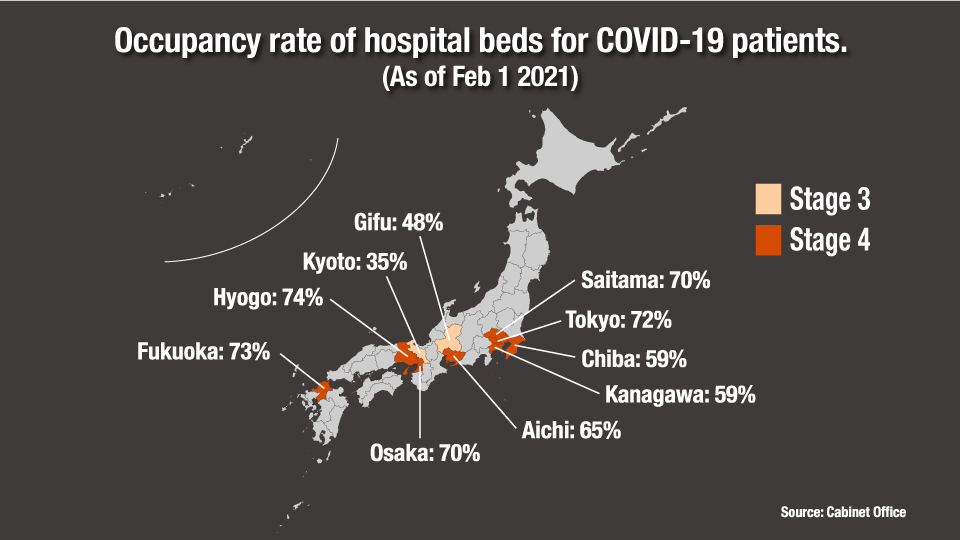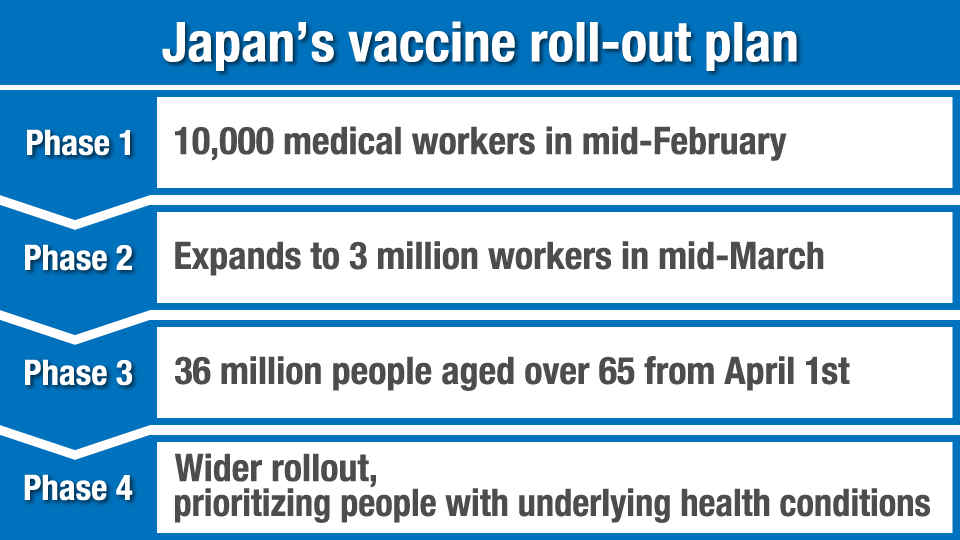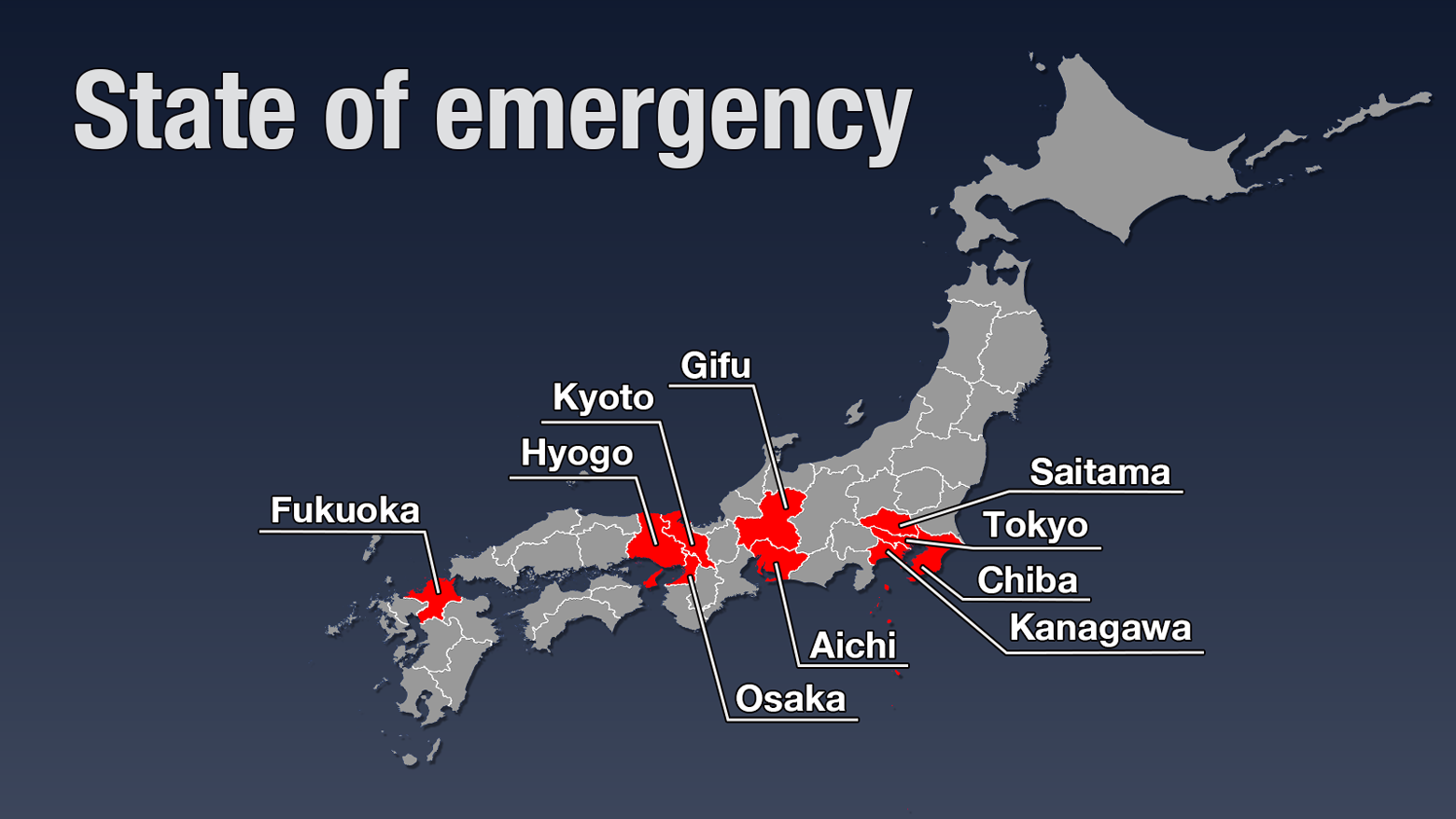"Every effort must be made to ensure that the recent decline in the number of new cases nationwide continues," said Suga in a news conference on Tuesday. He added that Tochigi Prefecture would not be subject to the extension because numbers there have improved sufficiently.
The government has revised its guidelines for the extended state of emergency. It is now asking people to refrain from non-essential outings not only at night but also during the day, and is urging people to work from home where possible to reduce commuter footfall by 70%. The government also wants people to avoid traveling to other prefectures, or to parts of their own prefectures where outbreaks have recently been reported.
Bars and restaurants will continue to be asked to close by 8 p.m. and abide by the pandemic guidelines set by their industries.
The prime minister said the state of emergency could be lifted earlier than March 7th in some prefectures if the situation improves.
Medical systems still under pressure
Japan confirmed 2,324 new cases of the coronavirus on Tuesday. The number of daily new cases in Tokyo has fallen over the past week, and dipped below 1,000 for five straight days.

But medical systems remain under pressure. The government's advisory panel uses a four-tier alert system to assess the level of the outbreak. One of the criteria it uses is the occupancy rate of hospital beds set aside for coronavirus patients. If the rate is 50% or above, it is categorized as the maximum Stage 4. On Tuesday, Tokyo was at 72%, Osaka 70%, and Aichi 65%. Five other prefectures had at least 50% occupancy.
"It is very important that these prefectures further reduce the number of new cases," said Omi Shigeru, the head of the advisory panel for the government's coronavirus response, in Tuesday's news conference. But he said it was just as important that authorities do more to secure hospital beds and healthcare workers to deal with serious cases of COVID-19.
The government is encouraging hospitals to accept recovering COVID-19 patients in regular wards to free up beds for new patients. Nursing homes for the elderly will also be asked to accept elderly patients who are recovering.

Japan's vaccination plan
The health ministry plans to consult with a panel of experts on February 12 to decide whether to approve a coronavirus vaccine developed by US pharmaceutical firm Pfizer. If the panel gives the green light, the ministry is expected to issue formal approval within days. Pfizer has signed a contract with the Japanese government to supply doses for 72 million people this year.
The government had been planning to begin administering the shot to healthcare workers by the end of this month, with the goal of vaccinating about 3.7 million by the middle of March. But Suga said on Tuesday that his cabinet would try to roll out the vaccination program by mid-February, slightly ahead of schedule. Regular residents aged 65 or over are expected to start receiving shots in April.

The Pfizer vaccine needs to be kept at around minus 75 degrees Celsius, and the government has begun building the infrastructure for this, shipping ultra-low-temperature freezers to public hospitals that will be tasked with giving healthcare workers the first injections.

